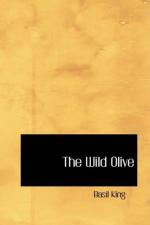So every night, as he sat in his cheerless hotel room, he reviewed his arguments, testing them one by one, strengthening the weak spots according to his lights, and weighing the for and against with all the nicety he could command. On the one side were love, happiness, position, a home, children probably, and whatever else the normal, healthy nature craves; on the other, loneliness, abnegation, crucifixion, slow torture, and slower death. Was it just to himself to choose the latter, simply because human law had made a mistake and put him outside the human race? The answer was obvious enough; but while his intelligence made it promptly, something else within him—some illogical emotion—seemed to lag behind with its corroboration.
This hesitation of his entire being to respond to the bugle-call of his need gave to his wooing a certain irregularity—an advance and recession like that of the tide. At the very instant when the words of declaration were trembling on his lips this doubt about himself would check him. There were minutes—moonlit minutes, in the patio, when the birds were hushed, and the scent of flowers heavy, and the voices of the older ones stole from some lighted room like a soft, human obligato to the melody of the night—minutes when he felt that to his “I love you!” hers would come as surely as the echo to the sound; and yet he shrank from saying it. Their talk would drift near to it, dally with it, flash about it, play attack and defence across it, and drift away again, leaving the essential thing unspoken. The skill with which she fenced with this most fragile of all topics, never losing her guard, never missing her thrust or parry, and yet never inflicting anything like a wound, filled him with a sort of rapture. It united the innocence of a child to the cleverness of a woman of the world, giving an exquisite piquancy to both. In this young creature, who could have had no experience of anything of the kind, it was the very essence of the feminine.




